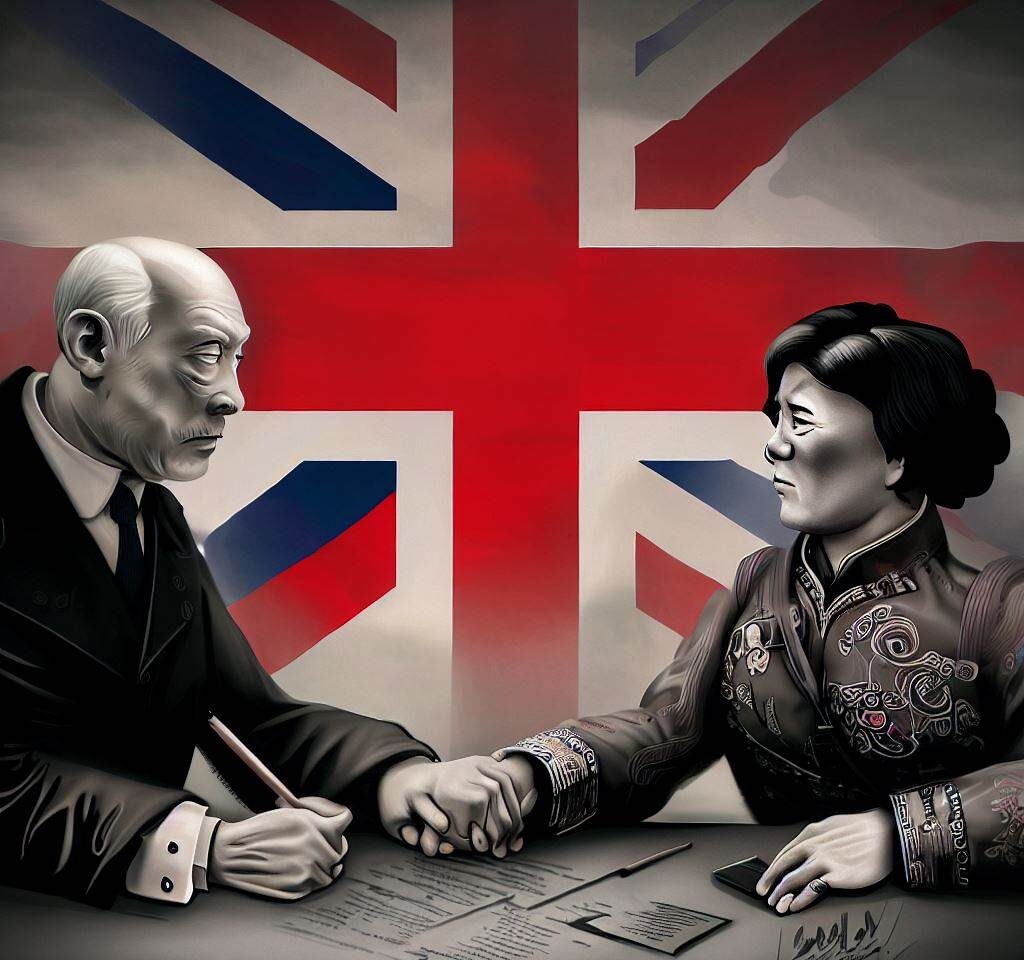The Treaty of Tianjin

The Treaty of Tianjin
The Treaty of Tianjin, signed in 1858, was a significant event in the history of China. The treaty was a result of the Second Opium War, fought between China and Britain and France. The treaty was signed between China and Britain, France, Russia, and the United States, and it marked a major turning point in China’s relationship with the rest of the world.
Background
The Second Opium War was fought between China and Britain and France over trade imbalances and the illegal opium trade. The war began in 1856, and the British and French quickly gained the upper hand. They captured Beijing in 1860, and the Chinese government was forced to sign the Treaty of Tianjin.
Terms of the Treaty
The Treaty of Tianjin contained eighteen articles, and it granted even more concessions to the foreign powers than the Treaty of Nanking, which ended the First Opium War. Some of the key provisions of the Treaty of Tianjin included:
- China had to pay an indemnity of 8 million taels of silver to Britain and France.
- China had to open eleven additional ports to foreign trade.
- Foreigners were allowed to travel freely throughout China and reside in any part of the country.
- Christian missionaries were granted the right to propagate their religion in China.
- Opium trade was legalized, and the Chinese government had to allow the importation and cultivation of opium.
- The treaty granted extraterritoriality to foreign citizens, which meant that they were subject to their own country’s laws rather than Chinese law.

Impact of the Treaty
The Treaty of Tianjin had far-reaching consequences for China. It marked the beginning of a period of unequal treaties, where China was forced to grant more and more concessions to foreign powers. The treaty weakened China’s sovereignty and further eroded its power and influence on the global stage.
Furthermore, the legalization of opium trade had a devastating impact on Chinese society. Opium addiction spread rapidly throughout China, and it led to social and economic problems. The opium trade also contributed to a trade imbalance, as China was exporting silver to pay for opium imports.
Conclusion
The Treaty of Tianjin was a significant event in the history of China. It marked a major turning point in China’s relationship with the rest of the world and set the stage for further foreign exploitation of China. The treaty weakened China’s sovereignty and contributed to the decline of the Qing dynasty. Furthermore, the legalization of opium trade had a devastating impact on Chinese society and contributed to social and economic problems that lasted for decades.








